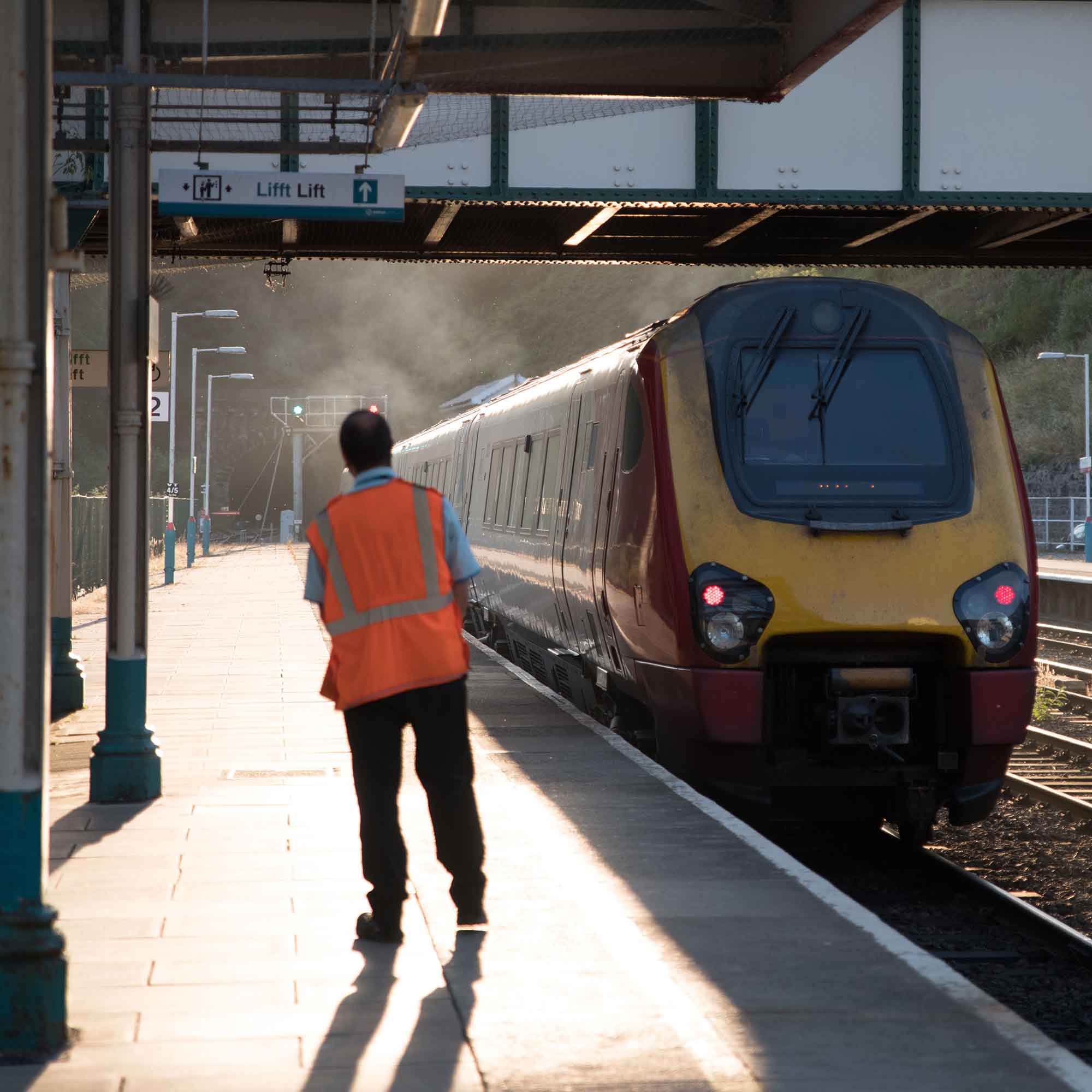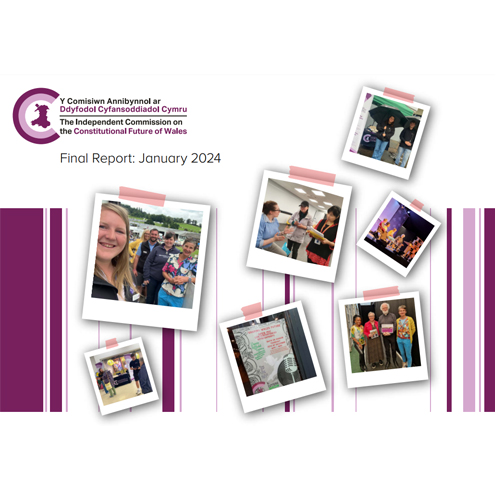The third in a Series of Reflections on the Commission’s Report
This is the third in a series of blogs by members of the Centre for Governance and Human Rights at Swansea University reflecting on the final report by the Independent Commission on the Constitutional Future of Wales.
The first blog in the series, by Dr Tom Hannant, provides an introduction to the Commission’s report, and the second blog by Professor Simon Hoffman discusses the report through the lens of human rights. This third blog focusses on the report’s recommendations regarding the devolution of railway services and infrastructure to Wales.
Context
In recent years the railways have gained a new importance in discussions regarding the future of devolution in Wales. In 2017, the Welsh Government demanded £700 million from the UK Government for its decision to scrap the electrification of the South Wales Mainline west of Cardiff. This has been followed by recurring demands by Welsh Ministers for ‘full rail devolution and a fair funding settlement for Wales’. More recently, the Welsh Government’s National Transport Delivery Plan set out the importance of rail transport in helping to encourage a modal shift away from the car towards the use of active travel and public transport; the logic of which forms an important part of the Welsh Government’s strategy to delivering a net-zero Wales by 2030.
Outside of Cardiff Bay, the link between the railways and devolution has also received attention through the decision by the UK Government to categorise HS2 as an “England and Wales” project, despite it not actually laying any track in Wales. A financial outcome of this decision is that Wales, unlike Scotland, has been unable to receive Barnett consequential funding for the money spent on HS2 (although this is also an outcome of the lack of devolution of rail infrastructure to Wales). This financial unfairness becomes more sobering when viewed against evidence produced by the Wales Governance Centre showing that if rail transport had been fully devolved then Wales could have received an additional £514 million of investment in its rail infrastructure between 2011 and 2020.
Despite these areas of political disagreement, the legal provision for the devolution of railway services is not straightforward, and has an additional complexity in Wales given the cross-border nature of the Welsh rail network. This reality is recognised in the Commission’s final report, which highlights that rail services are a ‘very complex area of devolution’ and that ‘very few aspects are wholly devolved or reserved.’ It is also an area of considerable asymmetry in legislative and executive competence across the three devolution settlements.
In Wales, aside from a few minor exceptions, responsibility over railway services is a reserved matter under Schedule 7A of the Government of Wales Act 2006. Therefore, unlike the Scottish Parliament, the Senedd has very little legislative competence over the railways in Wales. The situation is different regarding the Welsh Government, which holds executive responsibility over the Wales & Borders Franchise, however this is not an entirely exclusive responsibility and has a cross-border requirement to work with the UK Government on franchise operations in England. The complexity of railways in Wales is therefore attached to cross-border obligations and cannot be understood simply as an intra-Wales issue.
The Commission Report
In its final report, the Commission recommends the ‘full devolution of responsibility for rail services and infrastructure to Wales, with fair funding and shared governance on cross border services.’ Contrasting this with some of the other recommendations for further devolution set out in the report, we find a distinct lack of detail in the findings on rail services and infrastructure. For example, in its recommendation for the devolution of justice and policing, the report refers to ‘legislative and executive devolution’, whereas the recommendation on rail transport refers only to the devolution of ‘responsibility’. While this lack of clarity may be an acknowledgement of the complexity associated with this area of devolution, it raises the question of why the Commission did not seek to provide additional detail to explain the full devolution of responsibility for rail services and infrastructure. In practice, it is likely that any measure of devolution would be more nuanced, if only to acknowledge the cross-border nature of the rail network.
The transfer of ministerial responsibility over rail services and infrastructure could be achieved through a transfer of functions order, as has previously taken place through the transfer of full responsibility over the Wales & Borders Franchise in 2018, and the transfer of responsibility over the Core Valley Lines in 2020. Yet, a future transfer of responsibility for rail infrastructure would likely also need to be on a partly concurrent basis with UK Government as a significant proportion of the rail lines in mid and north Wales cross into England (e.g. the Welsh Marches Line from Wrexham General passes through Chester to the north, and Shrewsbury to the south). It is therefore difficult to frame this as a distinctly Welsh issue, primarily due to the fact that there would need to be cross-border cooperation on certain future infrastructure projects, such as the electrification of the North Wales Main Line.
The situation enters an additional realm of complexity in regard to the possible devolution of legislative competence, as this would likely either take form through an exception to the existing reserved matter of railway services under Schedule 7A, or by a more substantial amendment to remove railway services as a reserved matter altogether. On this issue, we find a useful guide in the devolution of railway services in Scotland where, unlike the Senedd, the Scottish Parliament holds competence over the promotion and construction of railways that “start, end and remain in Scotland”. The Scottish Parliament first used this power in 2006 to legislate for the reconstruction of the Borders Railway which reopened in 2015. This legal power is not framed as the full devolution of railway infrastructure, but is instead an exception to the reserved matter of railway services under Schedule 5 of the Scotland Act 1998. This creates the possibility that a similar solution could be made to work for Wales, and would allow for the Senedd to proceed on intra-Wales rail infrastructure projects, such as the reinstatement of the Aberystwyth to Carmarthen line, while not intruding on the cross-border nature of other parts of the network.
Away from questions of competence, the report is rather dismissive of the possibility that intergovernmental relations (IGR) may provide a mechanism for managing the railways in Wales. While there are notable concerns regarding the imbalanced and hierarchical nature of UK IGR in general – points that the final report addresses by recommending the Welsh Government seek the legislative entrenchment of UK IGR ‘to secure a duty of co-operation and parity of esteem between the governments of the UK’ – it is disappointing that the final report did not offer a more detailed consideration of the potential for a rail specific IGR forum. This seems like a missed opportunity given that there have recently been some improvements on IGR regarding rail in Wales, such as the UK Government’s creation of the Wales Rail Board in 2022. The lack of consideration of rail specific forms for IGR therefore seems like a missed opportunity, particularly as part of the Commission’s central recommendation on railways refers to the need for ‘shared governance on cross border services’.
Slow Train Towards Devolution?
As noted in the first blog in this series, it is perhaps most useful to view the Commission’s report as the beginning of a national conversation on the future of Welsh devolution, as opposed to a set of concrete proposals or next steps. This is not to suggest that the intricacies of devolving rail services and infrastructure will begin to enter everyday discussions in Wales, but as a point of general principle there appears to be a heightened awareness of rail as an important area for potential future devolution.




